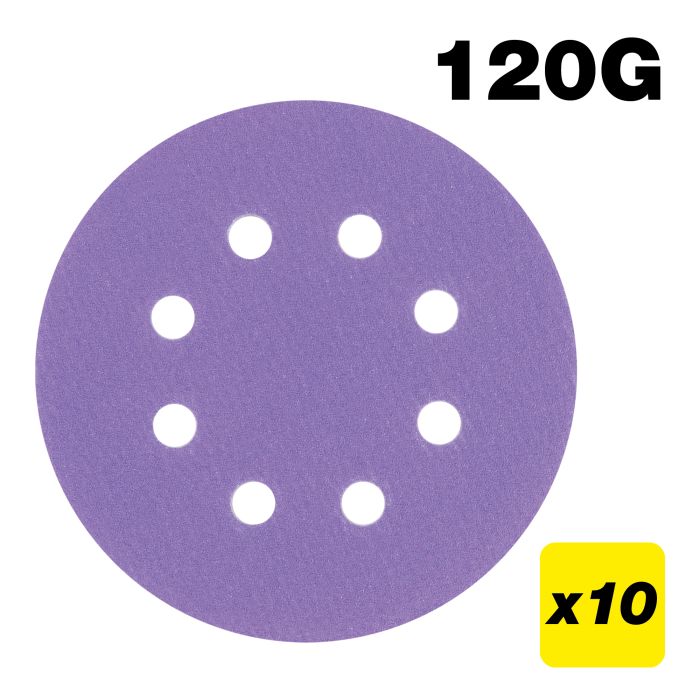U*AB/125/120A - Aluminium Oxide Random Orbital Sanding Disc 120 Grit 125mm 10pc
U*AB/125/120A
High performance multi-material long life Aluminium Oxide abrasive for 125mm Diameter Random Orbit Sanders. Suitable for wood, paint, plaster and metal
- SUPERIOR DUST EXTRACTION Elongated hole pattern ensures base compatibility and aids maximum extraction capability
- EASY ALIGNMENT Unique punch pattern for easy extraction hole alignment for faster application
- 125mm RANDOM ORBIT APPLICATIONS INCLUDE Single handed sanding, keying, secondary preparation, cleaning and fine finishing easy control on horizontal and vertical surfaces
- 125mm DIAMETER DISC Fits all hook and loop base 125mm random orbit sanders
- ANTI CLOGGING OPEN COAT increased spacing between the grit particles of grains reduces clogging and allows fast stock removal especially on gummy, resinous timbers, fillers and paint removal
- DUAL RESIN BONDING LAYERS two layers of resin keeps the abrasive grit firmly bonded to the backer for increased lifespan
- 3x LIFESPAN Highly durable Aluminium Oxide grit maintains performance gives 3 times longer life than conventional abrasives
- MULTI MATERIAL Ideal for use on wood, paint, metal and plaster
- 3 GRIT OPTIONS 120, 180 and 240 grit for preparation work, keying, de-nibbing and fine finishing applications
- HOOK AND LOOP FIXING Secure fix to the power tool base. Fast easy removal, increasing productivity when working through grits
- UNIVERSAL DUST HOLE PATTERN hole design ensures maximum compatibility on popular orbit sanders
- CONTROLLED CUT Finer grits for high quality preparation and finishing on all materials
- LONG LASTING FILM BACKING Flexible backer minimises cracking and grit loss for long lasting sanding and durability
- Type
- Aluminium Oxide
- Grit
- 120
- Diameter
- 125 mm
no spare products


